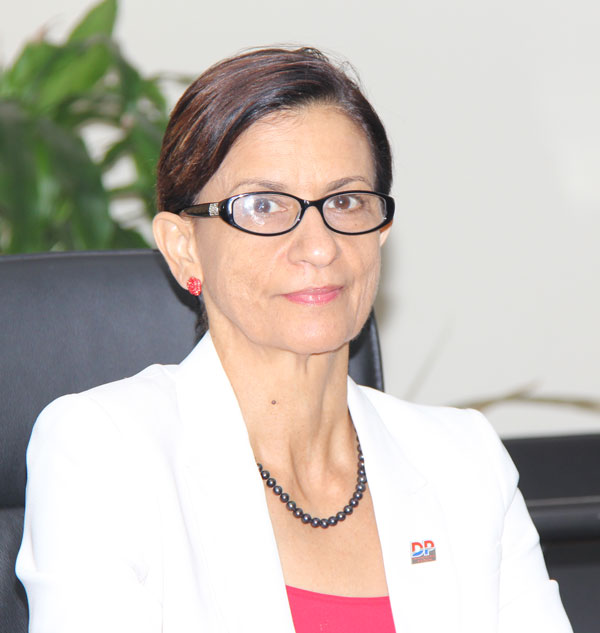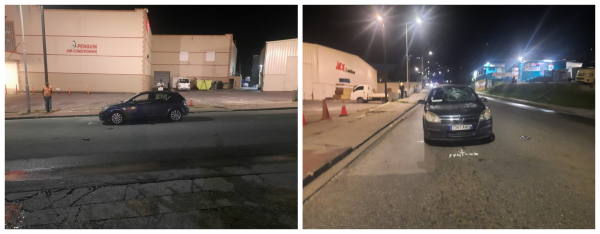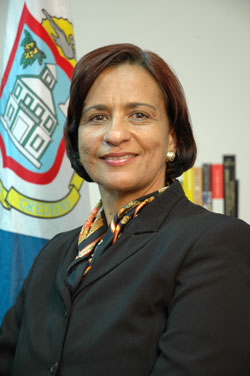 PHILIPSBURG:--- Member of Parliament Sarah A. Wescot-Williams has formally submitted questions to the Minister of Public Housing, Spatial Planning, Environment and Infrastructure (VROMI), seeking clarity on the recently announced Letter of Intent signed between the Ministry of VROMI and the United Nations Office for Project Services (UNOPS), aimed at improving national mobility in Sint Maarten.
PHILIPSBURG:--- Member of Parliament Sarah A. Wescot-Williams has formally submitted questions to the Minister of Public Housing, Spatial Planning, Environment and Infrastructure (VROMI), seeking clarity on the recently announced Letter of Intent signed between the Ministry of VROMI and the United Nations Office for Project Services (UNOPS), aimed at improving national mobility in Sint Maarten.
While welcoming initiatives intended to address the country’s longstanding traffic congestion, road safety concerns, and commuting delays, MP Wescot-Williams emphasized the need for clear, transparent, and practical information on what the signing of this Letter of Intent actually entails.
“Given the serious impact that traffic congestion and mobility challenges continue to have on productivity, tourism, small businesses, and quality of life, it is important that Parliament and the public clearly understand what this agreement represents and what outcomes can realistically be expected,” Wescot-Williams stated.
In her correspondence, the Member of Parliament requested clarification on several key issues, including:
- Whether the signing of the Letter of Intent marks the start of a new phase of work or formalizes assessments or engagements already undertaken with UNOPS or other partners;
- The scope and anticipated timeline of the cooperation, including milestones, studies, or pilot interventions;
- The specific deliverables expected under the collaboration, such as traffic or mobility studies, road safety recommendations, policy frameworks, or infrastructure proposals; and
- How the Ministry intends to ensure transparency and stakeholder engagement, including opportunities for Parliament, affected communities, and the business sector to review and provide input on findings and recommendations.
MP Wescot-Williams underscored that timely and detailed information is essential for Parliament to properly fulfill its oversight role and to help manage public expectations regarding both the short- and medium-term impact of the initiative.
“I look forward to the Minister’s response and to continued constructive dialogue on improving mobility and the overall quality of life for the people of Sint Maarten,” she concluded.
 PHILIPSBURG:--- The Sint Maarten Police Force (KPSM) is investigating a serious traffic accident that occurred on Friday, February 6, 2026, at approximately 9:00 PM on the A.J.C. Brouwers Road.
PHILIPSBURG:--- The Sint Maarten Police Force (KPSM) is investigating a serious traffic accident that occurred on Friday, February 6, 2026, at approximately 9:00 PM on the A.J.C. Brouwers Road. PHILIPSBURG:--- Member of Parliament Sarah A. Wescot-Williams has formally submitted questions to the Minister of Public Housing, Spatial Planning, Environment and Infrastructure (VROMI), seeking clarity on how the recently launched St. Martin Climate Impact Atlas will be practically integrated into national planning, climate resilience, and funding strategies.
PHILIPSBURG:--- Member of Parliament Sarah A. Wescot-Williams has formally submitted questions to the Minister of Public Housing, Spatial Planning, Environment and Infrastructure (VROMI), seeking clarity on how the recently launched St. Martin Climate Impact Atlas will be practically integrated into national planning, climate resilience, and funding strategies.